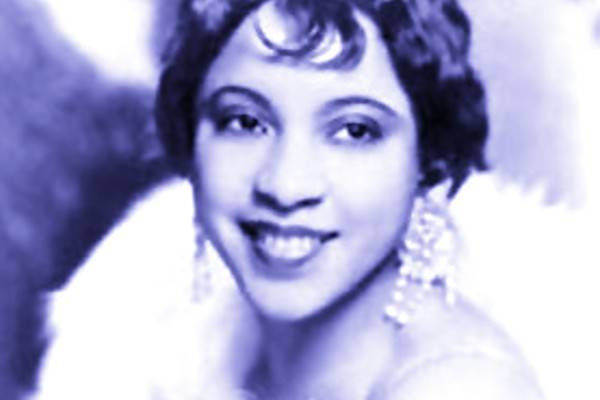Adelaide Louise Hall, a luminary of the Jazz Age and the Harlem Renaissance, stands as a testament to the enduring spirit and creativity of African-American artists. Born on October 20, 1901, in Brooklyn, New York, Hall’s remarkable career spanned decades and continents, leaving an indelible mark on the worlds of music, theater, and culture. This essay embarks on a journey through Hall’s life, exploring her roots in Harlem’s vibrant cultural scene, her rise to prominence amidst the Harlem Renaissance, and her enduring legacy as a pioneer of jazz and entertainment.
Early Life and Beginnings
Adelaide Hall’s formative years were shaped by the rich cultural tapestry of Harlem. Raised in a musically inclined family, she was exposed to the sounds of jazz, blues, and gospel from an early age. Her parents, Arthur and Elizabeth Hall, instilled in her a love for music and performance, nurturing her natural talents as a singer and dancer.
Harlem Renaissance: Cultural and Historical Context
The Harlem Renaissance, a flourishing of African-American arts and culture in the 1920s and 1930s, provided the backdrop for Hall’s emergence as a leading figure in the world of entertainment. Harlem, a bustling neighborhood in New York City, became a focal point for African-American creativity, attracting artists, writers, musicians, and intellectuals from across the country. Against the backdrop of racial segregation and social upheaval, the Harlem Renaissance offered a platform for African-American voices to be heard and celebrated.
Adelaide Hall’s Rise in Harlem
Hall’s ascent to prominence in Harlem was swift and undeniable. With her powerful voice and magnetic stage presence, she captivated audiences in the neighborhood’s renowned clubs and theaters. From the Cotton Club to the Apollo Theater, Hall’s performances showcased her versatility as a singer and her ability to interpret jazz standards with emotion and flair. Collaborations with luminaries such as Duke Ellington and Fats Waller further solidified her status as a rising star in the Harlem scene.
The Cotton Club: A Stage for Brilliance
The Cotton Club, an iconic venue in Harlem’s nightlife, played a pivotal role in Hall’s career. As one of the club’s featured performers, she dazzled audiences with her dynamic performances and charismatic personality. The Cotton Club, despite its segregationist policies, provided a platform for African-American artists to showcase their talents to a predominantly white audience. Hall’s presence at the club helped to bridge racial divides and elevate the status of African-American entertainers in mainstream culture.
Musical Collaborations and Innovations
Hall’s collaborations with Duke Ellington, Fats Waller, and other musical luminaries were groundbreaking in their innovation and artistry. With Ellington, she recorded timeless classics such as “Creole Love Call,” showcasing her ability to imbue jazz standards with her own unique style. Hall’s vocal prowess and improvisational skills set her apart as a true innovator in the world of jazz music, influencing generations of singers to come.
Challenges and Triumphs: Navigating Racism and Adversity
Despite her talent and success, Hall faced numerous challenges as an African-American artist navigating the racial dynamics of the early 20th century. Segregation, discrimination, and racial prejudice were pervasive in both society at large and the entertainment industry. Hall’s experiences navigating these obstacles were a testament to her resilience and determination. Through sheer talent and perseverance, she carved out a space for herself in an industry that often marginalized African-American artists.
Beyond Harlem: International Success
Hall’s talents transcended geographical boundaries, leading her to achieve international acclaim. In the 1930s, she embarked on a tour of Europe, where she was met with adoration and acclaim from audiences and critics alike. Her performances in London, Paris, and beyond cemented her status as a global icon of jazz and entertainment. Despite finding success abroad, Hall remained connected to her roots in Harlem, maintaining ties with the vibrant African-American community that had nurtured her talents.
Film and Theater Career
In addition to her musical pursuits, Hall found success on the silver screen and the stage. She appeared in several films, including “Pie Pie Blackbird” and “The Black Network,” showcasing her acting abilities alongside her musical talents. On stage, she starred in numerous productions, wowing audiences with her dramatic flair and theatrical presence. Hall’s forays into film and theater further solidified her reputation as a multifaceted performer with boundless talent and charisma.
Legacy and Influence
Adelaide Louise Hall’s legacy endures as a testament to the enduring power of African-American artistry and resilience. Her contributions to music, theater, and culture have left an indelible mark on the world, inspiring generations of artists to follow in her footsteps. From her early days performing in Harlem’s clubs to her international success on the global stage, Hall’s journey is a testament to the transformative power of music and the enduring legacy of the Harlem Renaissance.
Conclusion
In conclusion, Adelaide Louise Hall’s journey through Harlem’s rich history is a testament to the enduring spirit of creativity and resilience that defined the Harlem Renaissance. From her humble beginnings in Brooklyn to her international acclaim as a jazz icon, Hall’s legacy remains an inspiration to artists and audiences around the world. As we celebrate her life and achievements, we honor not only her extraordinary talent but also the vibrant cultural legacy of Harlem and the indomitable spirit of the African-American community.
